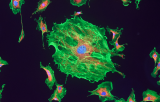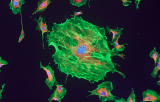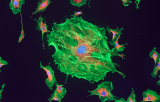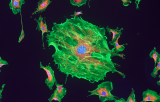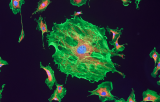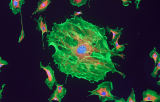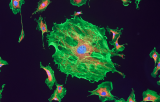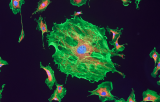
In situ hybridization probes - Bladder cancer
Bladder cancer is one of the most common cancers. Bladder cancer most often begins in the cells (urothelial cells) that line the inside of the bladder — the hollow, muscular organ in your lower abdomen that stores urine. Although it's most common in the bladder, this same type of cancer can occur in other parts of the urinary tract drainage system. About seven out of every 10 bladder cancers diagnosed start out at an early stage — when bladder cancer is highly treatable. However, even early-stage bladder cancer may recur in the bladder. For this reason, people with bladder cancer typically need follow-up tests for years after treatment to look for bladder cancer that recurs or advances to a higher stage. Risk factors for bladder cancer include smoking, family history, prior radiation therapy, frequent bladder infections, and exposure to certain chemicals. The most common symptom of bladder cancer is blood in your urine, which is usually painless.


